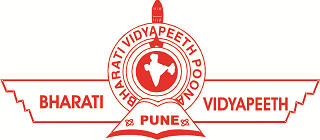DIGITAL SIGNAL PROCESSING LAB (C-102)
Lab Incharge : Ms Sarita Yadav
Lab Attendant: Ms Savita Dutonde
Digital signal processing (DSP) is concerned with the representation of signals as a sequence of numbers and the algorithmic operations carried out on the signals to extract specific information contained in them. In barely 40 years the field of digital signal processing has matured considerably due to the phenomenal growth in both research and applications, and almost every university is now offering at least one or more courses at the upper division and/or first-year graduate level on this subject. With the increasing availability of powerful personal computers and workstations at affordable prices, it has become easier to provide the student with a practical environment to verify the concepts and the algorithms learned in a lecture course.
Software Installed: C, C++, MATLAB
Hardware: Texas Instruments Kits-DSK 6713, CRO
DIGITAL SIGNAL PROCESSING LAB
Software Experiments:
- Generation of basic signals sine, cosine, ramp, step, impulse and exponential in continuous and discrete domains using user defined functions.
- Write a MATLAB program to find convolution (linear/circular) and correlation of two discrete signals.
- Perform linear convolution using circular convolution and vice versa.
- Write a MA TLAB program to
- Find 8 point DFT, its magnitude and phase plot and inverse DFT.
- Find 16 point DFT, its magnitude and phase plot and inverse DFT.
- Perform the following properties of DFT-
- Circular shift of a sequence.
- Circular fold of a sequence.
- Write a MATLAB Program to design FIR Low pass filter using
- Rectangular window
- Hanning window
- Hamming window
- Bartlett window
- Write a MA TLAB program to
- Implement a Low pass / High pass / Band pass / Band stop IIR Filter using Butterworth Approximation.
- Implement a Low pass / High pass / Band pass / Band stop IIR Filter using Chebyshev Approximation.
Hardware Experiments using Texas Instruments Kits-DSK 6713:
- Introduction to Code composer Studio.
- Write a program to generate a sine wave and see the output on CRO
- Write a Program to Generate ECHO to give audio file.
- Write a program to demonstrate Band Stop filter by FIR.
Additional Experiments:
12. Write a program to generate a cos wave and see the output on CRO 13. Write a program to blink the LED
14. Write a program to display a string on LCD.
Text Books:
[T1] Oppenheim & Schafer, Digital Signal Processing, PHI-latest edition.
[T2] Proakis and Manolakis, Digital Signal Processing, PHI Publication
Reference Books:
[R1] S. K. Mitra, Digital Signal Processing, TMH edition 2006
[R2] Johny. R. Johnson, Introduction to Digital Signal Processing, PHI-latest edition
ALGORITHMS DESIGN AND ANALYSIS LAB
-
To implement following algorithm using array as a data structure and analyse its time complexity.
- Bubble sort
- Insertion sort
- Selection sort Bucket sort e. Radix sort f. Shell sort g. Selection sort h. Heap sort
2. To implement following algorithm using divide and conquer strategy.
-
Merge sort
-
Quick sort
-
To implement following algorithm using divide and conquer strategy.
-
Heap sort
-
Bucket sort
-
Radix sort
-
To implement strassen’s matrix multiplication using divide and conquer strategy.
-
To implement Matrix Multiplication and analyse its time complexity.
-
To implement Longest Common Subsequence problem and analyse its time complexity.
-
To implement Optimal Binary Search Tree problem and analyse its time complexity.
-
To implement Huffman Coding and analyse its time complexity.
-
To implement Prim’s and Kruskal’s algorithm for MST.
-
To implement Dijkstra‟s algorithm and analyse its time complexity.
-
To implement naïve String Matching algorithm, Rabin Karp algorithm and Knuth Morris Pratt algorithm and analyse its time complexity
Suggested Books:
-
T. H. Cormen, C. E. Leiserson, R. L. Rivest, Clifford Stein, “Introduction to Algorithms”, 3rd Ed., PHI, 2013.
-
Jon Klenberg,Eva Tardos,”Algorithm Design”, Pearson Publications,2014

